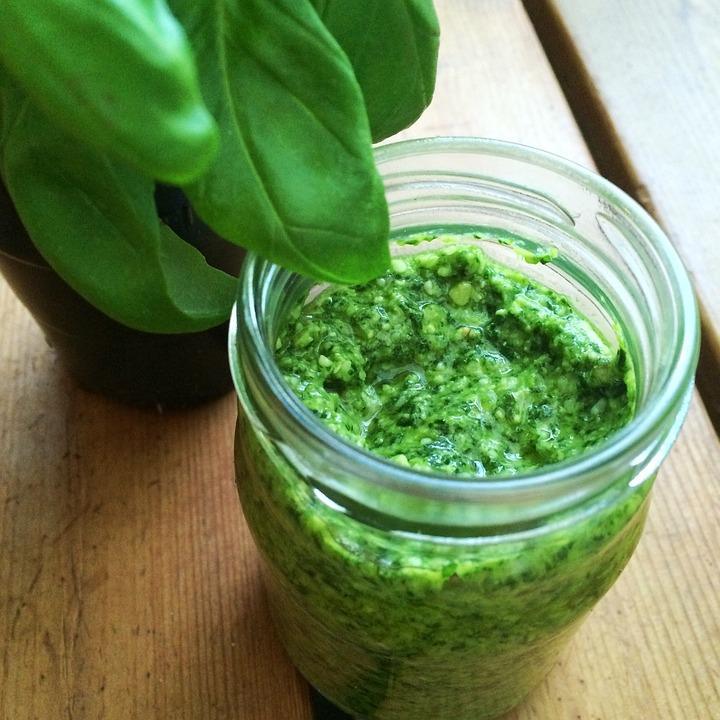Going organic isn’t just a trend; it’s a lifestyle choice that can profoundly impact your health. But what exactly does “going organic” mean? It refers to the practice of farming without synthetic fertilizers, pesticides, or genetically modified organisms (GMOs). Choosing organic foods might feel like a luxury, but the benefits stretch far beyond your grocery bill. Let’s dive into the seven surprising benefits of going organic for your health, and discover why this choice is more than just a fad.
Contents
- The Nutritional Edge: More Than Just a Buzzword
- Reduced Chemical Exposure: A Safer Choice for You and Your Family
- Supporting a Healthier Gut Microbiome
- Environmental Impact: A Choice That Matters
- Enhanced Mental Well-Being: A Mind-Body Connection
- Supporting Local Farmers: A Community Connection
- The Importance of Ethical Practices
- Bottom Line: Make the Organic Choice for a Healthier You
The Nutritional Edge: More Than Just a Buzzword
You might be wondering if organic food is really more nutritious. Research suggests that organic produce often contains higher levels of certain nutrients. Studies show that organic fruits and vegetables can have:
- Higher Antioxidant Levels: Organic foods may boast more antioxidants, which help combat free radicals in your body.
- Better Flavor: Many people agree that organic produce tastes better. A flavorful meal can make a world of difference in your dietary habits.
When you choose organic, you’re not only eating healthier, but you’re also treating your taste buds to something special.
Reduced Chemical Exposure: A Safer Choice for You and Your Family
One of the most compelling reasons to go organic is to lower your exposure to harmful chemicals. Conventional farming often uses pesticides and herbicides that can linger on your food, impacting your health over time. By choosing organic, you significantly reduce your risk of:
- Hormonal Disruptions: Some pesticides can interfere with hormone functions, causing a cascade of health issues.
- Neurological Effects: Evidence suggests that certain chemicals used in conventional farming can affect your nervous system, leading to long-term implications.
Your body deserves to be free from these potential toxins. When you make the switch to organic, you’re taking a bold step towards safeguarding your health.
Supporting a Healthier Gut Microbiome
Did you know that what you eat can significantly impact your gut health? Going organic may help promote a healthier gut microbiome. Here’s how:
- Diverse Nutrients: Organic produce is often grown in healthier soil, which can lead to a wider variety of nutrients. This diversity is crucial for a balanced gut.
- Fewer Additives: Organic foods typically contain fewer artificial ingredients and preservatives, allowing your gut to process food more naturally.
A well-balanced gut microbiome can enhance digestion, improve mood, and even boost your immune system. Choosing organic is a simple yet effective way to take charge of your digestive health.
Environmental Impact: A Choice That Matters
Choosing organic doesn’t just benefit your health; it also supports a healthier planet. Organic farming practices are generally more sustainable, requiring less energy and producing less pollution. Here’s what that means for you:
- Cleaner Water Sources: Organic farms often use less chemical runoff, which helps preserve our vital water systems.
- Biodiversity: Organic practices promote a diverse ecosystem, supporting local wildlife and reducing the risk of monoculture.
When you choose organic, you’re not just making a choice for yourself; you’re contributing to a healthier planet for future generations.
Enhanced Mental Well-Being: A Mind-Body Connection
Believe it or not, what you eat can influence your mental health. Research indicates that a diet rich in organic foods can lead to improved mood and mental clarity. Here’s why:
- Nutrient-Rich Foods: The vitamins and minerals found in organic produce can help support brain health.
- Reduced Stress: Knowing you’re consuming fewer chemicals can ease anxiety about what you’re putting in your body.
By going organic, you’re not just nourishing your body; you’re also nurturing your mind. It’s a holistic approach to well-being that can lead to greater happiness and fulfillment.
Supporting Local Farmers: A Community Connection
When you choose organic, you often support local farmers rather than large corporations. This connection can have a ripple effect on your community:
- Stronger Local Economy: Buying from local organic farms keeps money within your community, supporting jobs and local businesses.
- Freshness Guaranteed: Local organic produce is typically fresher, meaning you get more nutrients and better taste in every bite.
Choosing organic is a way to invest in your community and foster relationships with those who grow your food. It’s a beautiful cycle that benefits everyone involved.
The Importance of Ethical Practices
Another surprising benefit of going organic is that it often aligns with ethical farming practices. Organic farms typically prioritize:
- Animal Welfare: Organic standards often require better living conditions for livestock, ensuring animals are treated with respect.
- Fair Labor Practices: Many organic farms are more committed to fair labor practices, ensuring that workers receive fair wages and safe working conditions.
By choosing organic, you’re not just making a health choice; you’re making a statement about the kind of world you want to live in.
Bottom Line: Make the Organic Choice for a Healthier You
Going organic is more than a simple dietary change; it’s a lifestyle choice that can enhance your health, support your community, and contribute to a better planet. From reducing chemical exposure to promoting mental well-being, the benefits of organic foods are vast and impactful.
So, what are you waiting for? Take that bold step toward a healthier you. Make the organic choice today and experience the difference in your life.
FAQs
1. Is organic food more expensive?
While organic food can be pricier, many people find that the health benefits outweigh the costs. Plus, buying in bulk or shopping at local farmers’ markets can help reduce expenses.
2. How can I tell if a product is truly organic?
Look for the USDA Organic seal on packaging. This ensures that the product meets strict organic standards.
3. Can I grow organic food at home?
Absolutely! Growing your own organic fruits and vegetables is a rewarding experience that allows you to control what goes into your food.
4. Are all organic foods healthier?
While organic foods often have fewer chemicals, it’s still essential to maintain a balanced diet. Not all organic products are equally nutritious, so check the labels.
5. What are some easy ways to start going organic?
Begin by swapping out a few key items, like dairy, dairy alternatives, or produce. Gradually incorporate more organic options into your diet as you become accustomed to the changes.
By embracing organic foods, you’re embarking on a journey of health, taste, and ethical responsibility. Join the movement and feel the benefits in every bite!
Get Your FREE Natural Health Guide!
Subscribe now and receive our exclusive ebook packed with natural health tips, practical wellness advice, and easy lifestyle changes, delivered straight to your inbox.




